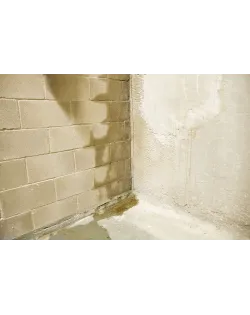It seems like we have had rain or a threat of rain in the weather
forecast every day for the past 6 weeks.
Some of this water may be making it into your basement. Here's what you should do to lessen the
chances of basement leaks…
With rain seemingly occurring
every day, how can you make sure all that rain water stays on the outside of
your house where it belongs, and not in your basement?
Take a good look.
Now would be a great time to go
outside and examine the exterior of your house, particularly your
landscape. Your house should appear to
be perched on a turtle's back. This
means all the landscaping up to the house should be just that; sloped up to the
house.
If your house is sitting in a
hole, you are a basement puddle waiting to happen.
While you are looking, make sure
all your concrete - driveways, sidewalks, patios, and walkways slope either
away from the house or into a drain.
Nothing will cause a damp basement quicker than a concrete patio outside
your basement door sloping toward the house.
If your patio is guilty of this you
have three choices - you basically either tear it out and start over, have it
jacked up to slope the other way, or install a drainage system.
This is also a good time to
mention that the "It's been that way for 3 years and hasn't leaked yet" defense
is a poor defense. Water always finds a
way, and that way always goes downhill.
You do the math.
Also - check to make sure your
gutters are clean and working properly.
Clogged gutters lead to water spilling over the top and guess where that
water ends up? You are correct if you
said "Directly on the foundation of my house".
Don't be lured in with the "Never
clean your gutters again" crowd. Stuff
gets in your gutters I don't care what kind of covering you use. Grit off your roof ends up in the gutter, a
leaf or a twig from a bird making a nest ends up in your gutter, small rodents
end up in your gutters. Stuff gets in.
While looking at the gutters,
make sure the downspouts drain at least 10 feet from the foundation of your
house. The ever popular 2 1/2' splash
guard may be stylish, but it allows water to drain too close to your house.
One last thing to check while you
are outside is your French drain. Many
houses have them and often you can find the end of that drain. Make sure it is free of debris.
Now look inside.
Take a good look at your basement
walls (if you can). Mark any cracks and
make sure they aren't expanding. (Note -
horizontal cracks in your foundation wall are a serious cause for alarm and
should be dealt with immediately.)
Many smaller cracks can be
repaired with hydraulic cement.
By keeping an eye on your house
from the outside in and inside out, you may be able to head off serious water
damage in the future.
Of course, if you already
experience water leakage in the basement after a heavy rain, it may be time to
call in a water-proofing expert. But by
following the above tips, you can possibly prolong the dry life of your
basement!
